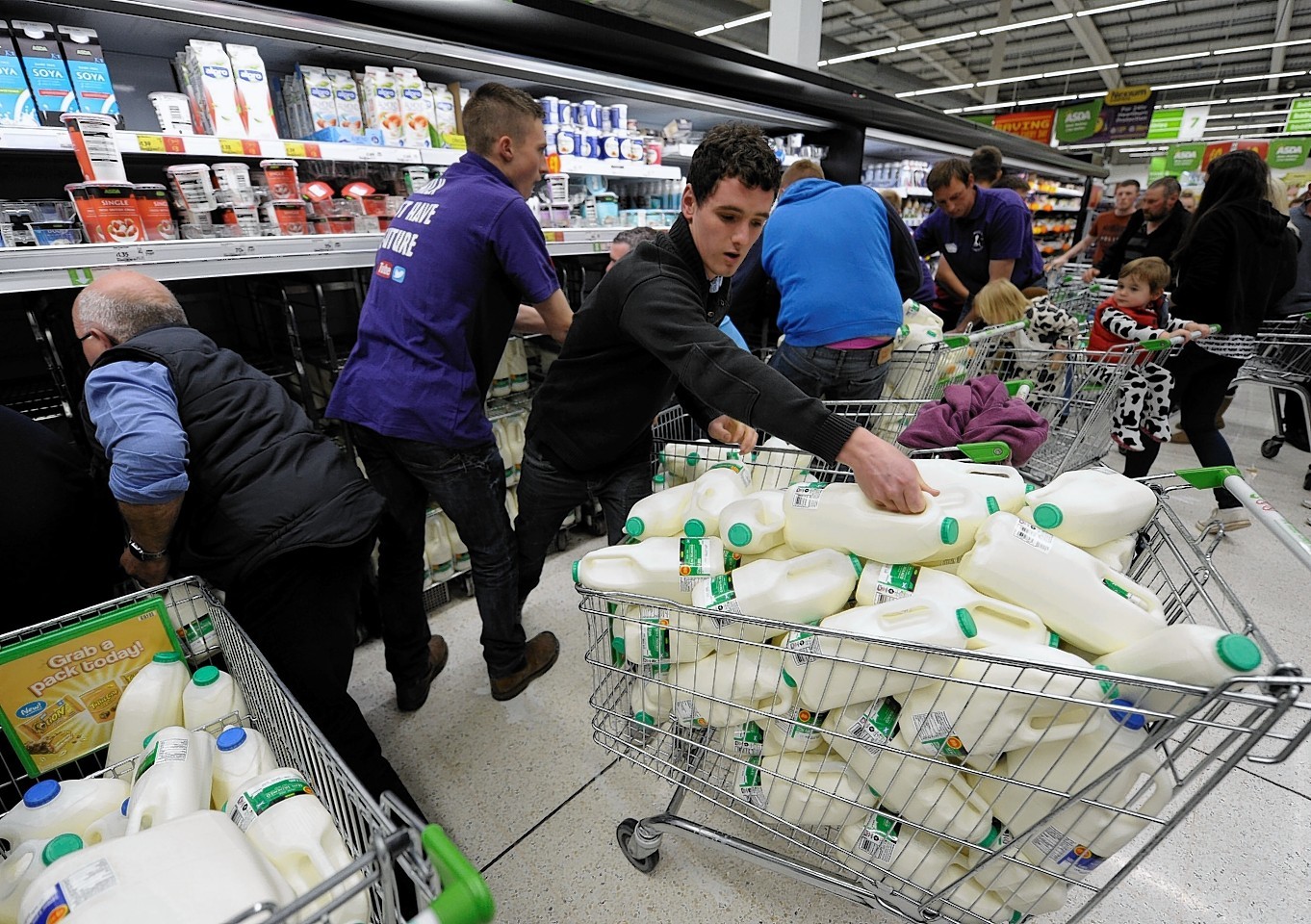A much-heralded farming summit in London yesterday delivered subtly different messages from participants and no clarity on what the next move will be.
The meeting was convened by Defra Secretary of State Liz Truss following requests from devolved administrations and farming unions, with the farming crisis the only item on the agenda.
It is obvious from Ms Truss’s statement after the meeting that she is focused on milk, whereas NFU Scotland (NFUS) and Scottish Farming Minister Richard Lochhead were taking a wider view of the industry’s ails.
Ms Truss said: “A global surplus of milk is causing low prices around the world and it is well beyond the control of farmers.
“I want to see this situation taken seriously by the EU, who have the means to help farmers manage this volatility and build resilience.
“That is why when I meet agriculture ministers next month I will be emphasising the need for a futures market and insurance for dairy products – as they already have for cereal farmers – to give them long-term security over price.”
Cereal farmers know they have a futures market but will no doubt be interested to hear they have an insurance scheme to hand.
Ms Truss said she was pleased to see some supermarkets sharing the risk with farmers over price fluctuations for milk and added she would “urgently” set up a new working group to develop “best practice models” with the industry.
She also pointed out that only half the butter and cheese eaten in the UK is made from British milk.
“I want to see better branding and clearer labelling of dairy products in supermarkets and throughout the catering industry so that people know when they are buying British, and we have agreed to have further discussions with the food industry,” she added.
In other words Ms Truss is looking mostly to market rather than political solutions.
NFUS president Allan Bowie echoed the market sentiments to an extent but called for a more fundamental EU-led paradigm shift to deal with volatility and resilience across all farm commodities.
“The unfettered free market is not working and it is undermining some very good farm businesses,” he said, adding: “The supply chain clearly is not working, whether that be for lamb, milk or any other farm products.
“The frustration and anger of farmers is understood and the need to find a long-term solution to these problems is needed.
“There was agreement to work together on a list of demands and actions to be put to the UK retailers and food service sector to seek a commitment from them on sourcing, labelling and promotion.
“This follows on from the request from the four farming unions to meet the chief executives of all the major supermarkets chains.
“They have a central role to play in protecting our processing sector and preserving a viable production base on our farms. Clear commitment is needed if a meltdown is to be avoided.
“Ahead of the emergency EU farming summit on September 7, all parties agreed today to work on a list of UK demands to deal with volatility and build resilience into the industry that will be put in front of the European Commission.”
Mr Lochhead said: “Farming ministers and industry leaders from across the UK will now urgently agree a list of commitments to support farmers that we will ask supermarkets and the food service sector to sign up to.
“We need to act before it’s too late and I encourage the food industry to step up to the plate and support farmers in their hour of need to prevent any potential loss of supply.”
